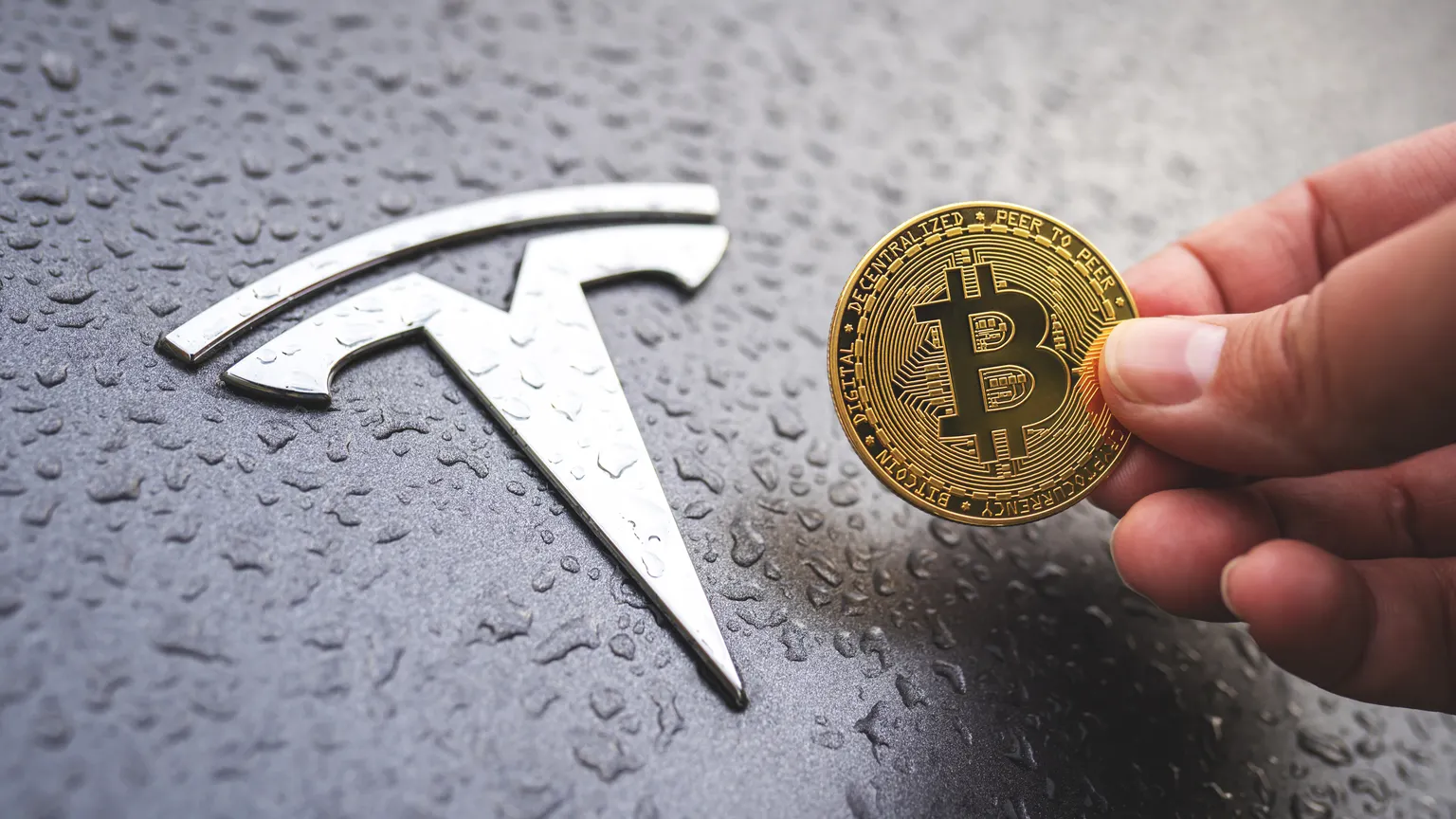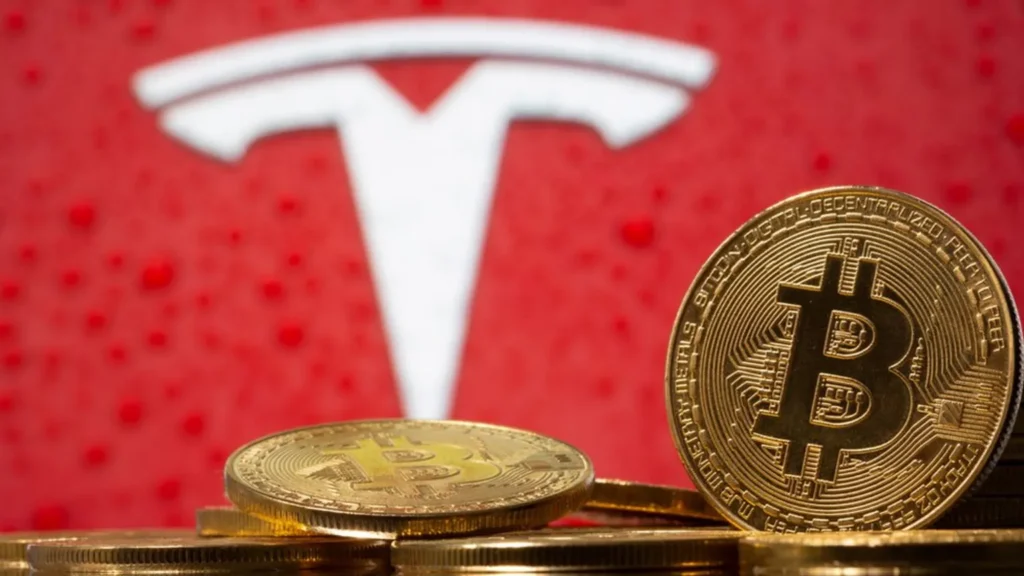Tesla’s dealings with Bitcoin have been subjected to much speculation and discussion since the electric auto manufacturer first made headway in cryptocurrency. It was reported that Tesla had not bought more Bitcoin in the past quarter, even though its peach price increased by more than twice. Bitcoin Price In Trouble, This news arrives when Bitcoin is on a strong rally, with implications for Tesla’s crypto strategy, recent regulatory changes, and corporate Bitcoin adoption.
Specifics on Tesla’s Bitcoin Holdings and Strategy
Tesla made its initial foray into the Bitcoin market in early 2021 when it bought around $1.5 billion worth of the cryptocurrency. It rattled the tech and financial sectors and constituted one of the most prominent corporate endorsements of digital assets. Soon afterward, Tesla sold some of its Bitcoin holdings, claiming the need for liquidity and also wanting to test the market’s functionality. Since then, the firm has held Bitcoin, sometimes offloading bits of its stash but leaving the most intact.
While there had been speculation that the recent price surge of the cryptocurrency would prompt Tesla to use part of its $46 billion cash pile to increase its investment in the cryptocurrency, the company’s latest quarterly financial report confirmed that it made no such purchases last quarter. Tesla’s holdings in Bitcoin remained at 11,509 BTC—the same figure as the company’s most recent financial disclosures. However, Bitcoin prices soared, greatly increasing the value of Tesla’s holdings.
Role of Accounting Rule Changes
One of the key reasons Tesla reported a significant gain from its Bitcoin holdings without making new purchases is the change in accounting rules for cryptocurrencies. Previously, companies holding Bitcoin and other digital assets were required to report them as intangible assets, meaning they had to record impairment losses if the value of Bitcoin dropped. Still, they could not mark up the asset when its price increased. Many companies showed substantial paper losses even when their Bitcoin holdings were profitable at current market prices.

In late 2023, the Financial Accounting Standards Board (FASB) adopted new accounting rules that allow companies to show any gains and losses in fair value for their cryptocurrency holdings. Bitcoin Last Quarter, This change means that Tesla could now record the increased value of its Bitcoin holdings directly in its financial statements. Thus, even without buying more Bitcoin, Tesla made a $600 million profit from its crypto holdings in the last quarter as the price of Bitcoin went up significantly.
Bitcoin Market Rally And What Is Driving It
Tesla’s financial benefit from Bitcoin comes during a broader boom of cryptocurrency. Over the period, Bitcoin’s price rose above $109,000, backed by a mixture of macroeconomic factors. Increasing institutional interest, in addition to expectations for the upcoming Bitcoin halving event. The demand was also fueled to an extent by the approval of spot Bitcoin ETFs by the U.S. Securities and Exchange Commission (SEC), which provided mainstream investors with a simpler way to gain exposure to Bitcoin.
Tesla’s gains on its Bitcoin holdings highlight the extent to which corporate crypto investments can be influenced by market swings, even without any active trading on the part of the company. Bitcoin Last Quarter, It’s also a question of how similar changes to accounting rules might shore up the balance sheets of other businesses with prominent amounts of Bitcoin on their books—businesses like MicroStrategy and Block.
Why Didn’t Tesla When More Bitcoin?
With Bitcoin on a tear lately and becoming more and more accepted in the mainstream. Some investors may be wondering why Tesla didn’t buy more. There could be several explanations for this decision. First, Tesla’s main business is still electric vehicles and energy solutions, so any capital allocation to Bitcoin must be balanced with capital allocated to core operations, research, and development. The company has been struggling in its EV segment with production issues and slowing demand in some markets—factors that might take priority over investing more into Bitcoin.
A possible reason for that is regulatory uncertainty. In general, Bitcoin is becoming more valuable in the institutional world. But at every step, the regulatory landscape for Bitcoin is quite complex. Tesla has previously come under scrutiny for its own Bitcoin dealings. Including briefly accepting Bitcoin as payment for vehicles before reversing course amid environmental concerns. The firm might adopt a wait-and-see approach towards new acquisitions until regulatory frameworks around corporate crypto investments become more clear.
Wider implications for corporate adoption of bitcoin
Tesla’s foray into Bitcoin illustrates both the promise and the pitfalls of corporate cryptocurrency adoption. On one hand, Tesla proved that Bitcoin can actually be a valuable asset on a company’s balance sheet. With tremendous appreciation potential. HODL BTC, With the passage of the new accounting rules, it becomes simpler for firms to disclose. Their crypto assets in a more transparent manner, which may incentivize more corporations to examine Bitcoin as a Treasury asset.
Tesla’s decision not to purchase more Bitcoin. By contrast, it reflects the cautious approach many corporations take to the world of digital assets. Tesla’s actions contrast with companies such as MicroStrategy. Which have used their cash reserves to aggressively increase. Their Bitcoin holdings, while others don’t seem to want to adopt such a strategic approach. This means that Bitcoin is mainstream, but not corporate mainstream—not ubiquitous enough. To be considered a part of daily business operations, despite all the hype.
[sp_easyaccordion id=”2596″]


